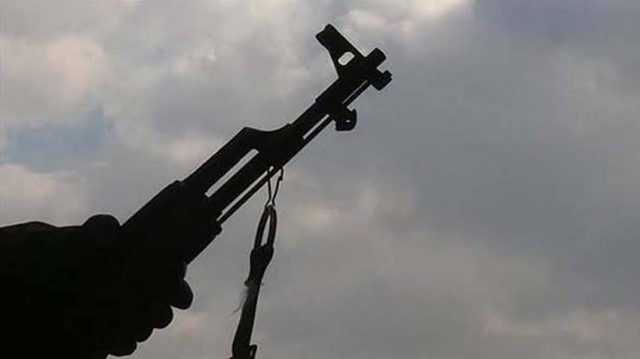Terrorist Attacks May Cause Food Insecurity In Northwest State
Farmers in about one-third of local government areas in Katsina State, Northwest Nigeria can no longer access their farms due to activities of terrorists.

Eleven of the 34 local government areas in Katsina State, Northwest Nigeria face food insecurity due to several terror-associated challenges bedevilling their farming activities in the last rainy season, HumAngle investigation reveals.
“At many farming communities in Dandume Local Government Area, the terrorists waited for the farmers to harvest and bag the maize, and were just about to evacuate the produce home when they descended on them and snatched everything,” a farmer who talked anonymously for fear of being punished by terrorists, told HumAngle.
The local government areas, which are in various degrees of control by terrorists, are Faskari, Dammusa, Safana, Batsari, Jibiya, Kankara, Sabuwa, Funtua, Dandume, Bakori and Matazu.
The worst-hit areas are Dammusa, Safana and Batsari which. Locals told HumAngle that these areas are in total control of the terrorists.
Farmers now live at the mercy of the terrorists, who are the de-facto rulers in these communities. “Worse plights befell farmers at the majority of the communities in these local government areas,” one of the farmers told HumAngle.
The farmer continued: “In my home local government area, Dammusa, the terrorists ruthlessly let loose their herd of cattle in the last cropping season to devour the ripening beans of a prominent large-scale farmer, leaving virtually nothing to harvest.”
He lamented that no farmer dare report his plight to the village or district head for fear of being killed by the terrorists.
“They have their own way of knowing that you have reported them to someone, and that is your punishment unless you are lucky to elope out of the community.”
Terror, according to the farmer, further drastically reduced large-scale farming in Katsina State in comparison to the previous cropping seasons.
“Large farms that usually produced 500 to 3000 sacks of maize were not cultivated in the majority of the farming communities across the 11 local government areas, especially Faskari, Kankara, Sabuwa and Dandume, in the last cropping season,” he said.
Part of the problems facing the farmers is not daring to stray to their farms three to five kilometres at the outskirts of their settlements to cultivate the fields for fear of abduction by the terrorists.
This, HumAngle observed, was the primary problem among the affected farming communities.
There were also the “most pathetic” problems of the terrorists snatching the largest quantum of the harvested farm produce from the farmers when moving them home; and the terrorists coercing the farmers to harvest and deliver the produce to their enclaves in the bush.
The terrorists let their cattles feast on farms with ripe crops, when the farmers were already savouring the hope of achieving some harvest.
These recurring problems have, albeit in varying degrees, drastically slashed harvests in the five terror-troubled Northwest states of Zamfara, Katsina, Sokoto, Kaduna, and Kebbi, and the North-central state of Niger over the last four years to a “very inconsequential quantum,” compared to previous years, local sources told HumAngle.
The majority of the farming and fishing communities of Boko Haram-ravaged Northeast states of Borno, Yobe, and Adamawa, HumAngle observes, are bedevilled by similar problems.
For instance, in many of the farming communities in Northern Borno, especially in the five northernmost local government areas by the Lake Chad shores, the terrorists have besieged scanty populations of farmers, forcing them to grow and harvest the crops for them in a virtual master-servant relationship.
No government or private source can produce a reliable estimate of the quantum of farm produce lost to terror in the state by the last major harvest time.
Support Our Journalism
There are millions of ordinary people affected by conflict in Africa whose stories are missing in the mainstream media. HumAngle is determined to tell those challenging and under-reported stories, hoping that the people impacted by these conflicts will find the safety and security they deserve.
To ensure that we continue to provide public service coverage, we have a small favour to ask you. We want you to be part of our journalistic endeavour by contributing a token to us.
Your donation will further promote a robust, free, and independent media.
Donate HereStay Closer To The Stories That Matter




